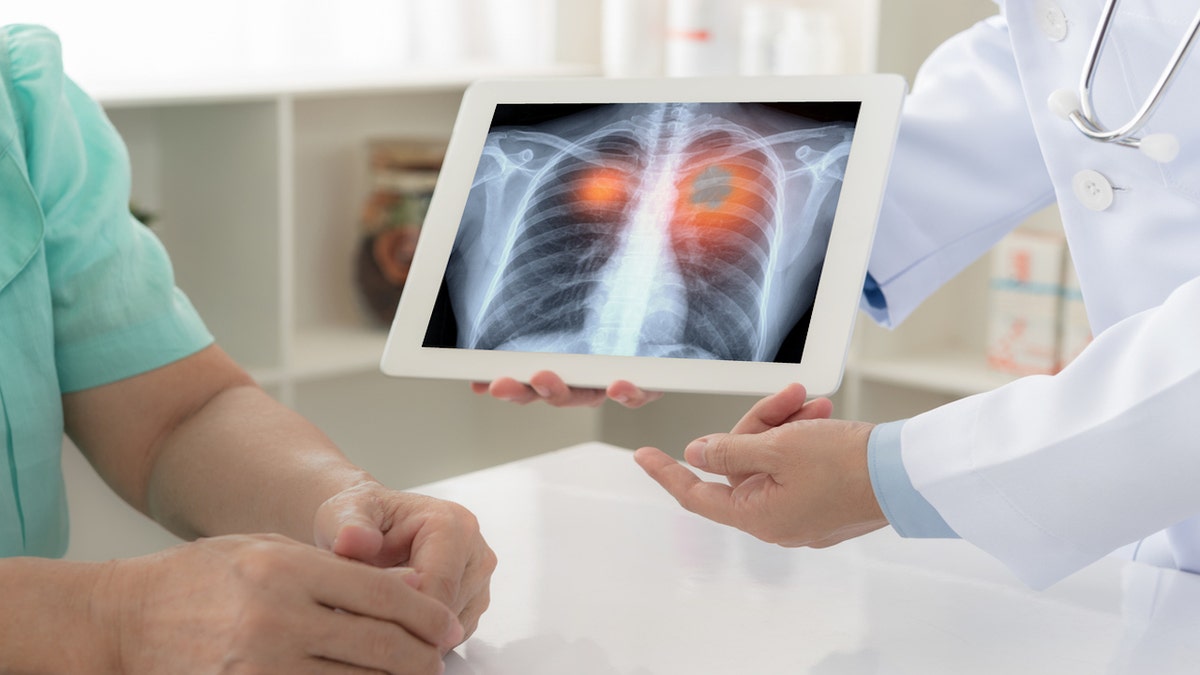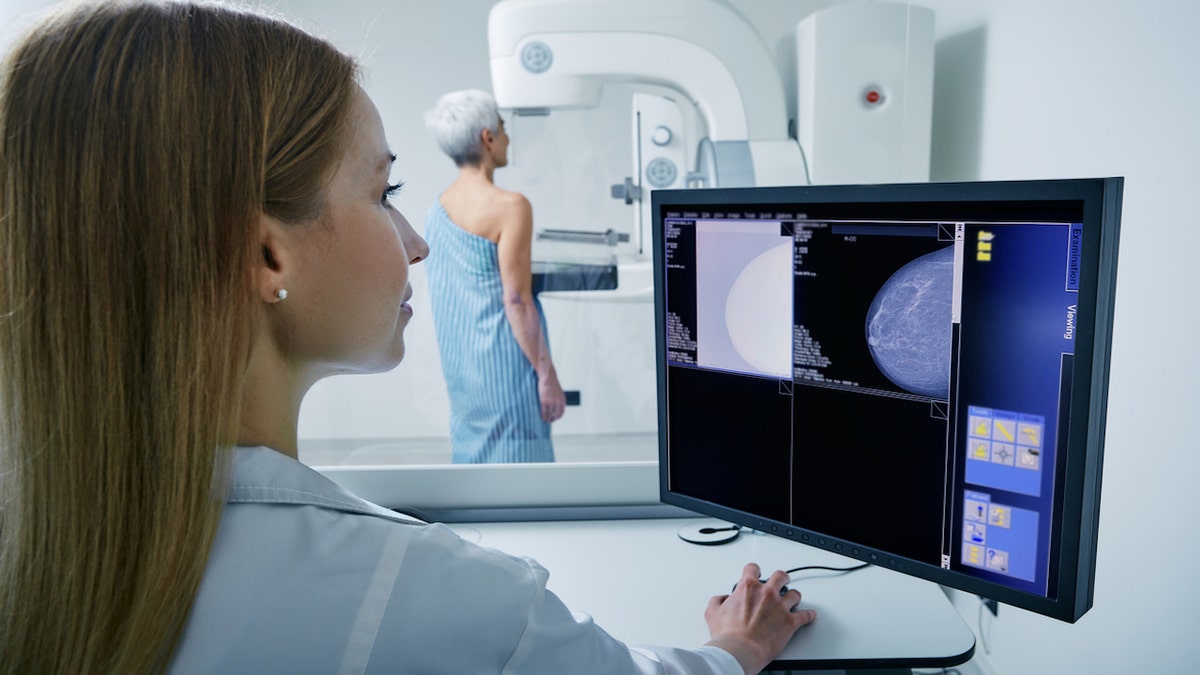Breast cancer survivor celebrates son's first birthday after fertility preservation
Victoria Raphael of New York City reveals her success story — and her decision to freeze her eggs after she was diagnosed with cancer.
Women with breast cancer who have received chemotherapy are at an increased risk of developing lung cancer, a new study suggests.
Epic Research, a health data group based in Wisconsin, found that women in this category have a 57% higher lung cancer risk than those who received radiation.
In comparison to patients who received endocrine therapy, those who have undergone chemo have a 171% increase in lung cancer risk, the study found.
BREAST CANCER DRUG COULD HAVE POTENTIALLY SERIOUS SIDE EFFECT, NEW RESEARCH REVEALS
In a statement sent to Fox News Digital, the Epic Research team said the key takeaway from their research is that primary lung cancer is more than twice as prevalent in women who were previously diagnosed with breast cancer — compared to those who did not have it.
"Furthermore, women who had breast cancer and received chemotherapy have the greatest risk of subsequent primary lung cancer," the researchers wrote.

Women with breast cancer who have received chemotherapy are at an increased risk of developing lung cancer, a new study is suggesting. (iStock)
"This suggests that patients diagnosed with breast cancer are at an increased risk of developing second primary lung cancer, especially if their treatment included chemotherapy."
BREAST CANCER BREAKTHROUGH: AI PREDICTS A THIRD OF CASES PRIOR TO DIAGNOSIS IN MAMMOGRAPHY STUDY
The research group studied more than two million women ages 50 to 84 who received a screening mammogram between 2010 and 2023.
Patients with an elevated breast cancer risk due to a previous breast or lung cancer diagnosis, those who had been screened within the past three months and those who started mammogram screenings prior to age 50 were excluded from the study.
"This could potentially limit the generalizability of our findings," the researchers said.

The research group (not pictured) studied more than two million women ages 50 to 84 who received a mammogram screening between 2010 and 2023. (iStock)
The team encouraged patients with a history of breast cancer — especially those who have had chemotherapy — to monitor for the development of primary lung cancer.
"It is important to remember that while our study found a correlation between breast cancer, its treatments and subsequent primary lung cancer, this does not mean that every woman who has had breast cancer will develop lung cancer," the researchers said.
CLICK HERE TO SIGN UP FOR OUR HEALTH NEWSLETTER
Fox News medical contributor Dr. Marc Siegel, clinical professor of medicine at NYU Langone Medical Center, told Fox News Digital that one cancer can cause a "higher genetic risk" for others.
"We don't know the exact etiology, but one cancer puts you in a higher genetic risk pool for other cancers, either because of cancer genes that increase the risk of both, or because of a tendency for mutations that is increased in this pool," he said.
"It could also be because of environmental factors or carcinogens, including diet, or the result of toxicities from the treatment for breast cancer," Siegel added.

The researchers encouraged patients with a history of breast cancer, especially those who have had chemotherapy, to monitor for the development of primary lung cancer. (iStock)
Jack Manley, M.D., head of new markets and growth at Viz.ai, a San Francisco-based AI-powered disease detection platform, shared with Fox News Digital that Epic Research’s findings and methodology speak to "the power of incorporating multi-modal data in predictive algorithms."
Said Manley as well, "Companies with capabilities to incorporate both structured and unstructured EHR (electronic health record) data with conventional imaging will have a higher predictive performance than those that don't."
He was not involved in the study.
CLICK HERE TO GET THE FOX NEWS APP
"Currently, a large majority of patients with pulmonary nodules (a possible indicator of early lung cancer) are missed on conventional imaging, while less than half of these detected patients receive subsequent guideline-recommended follow up," he said.
Artificial intelligence tools are "well-positioned" to address these challenges, Manley noted — but EHR integration is "key to finding those patients at the highest risk."


